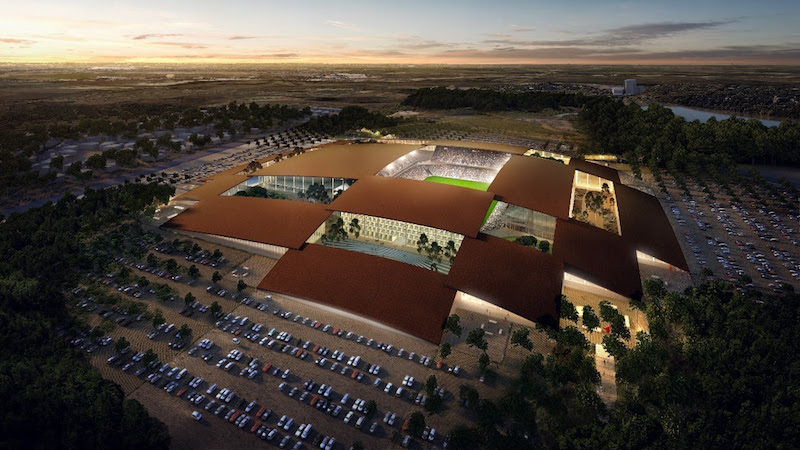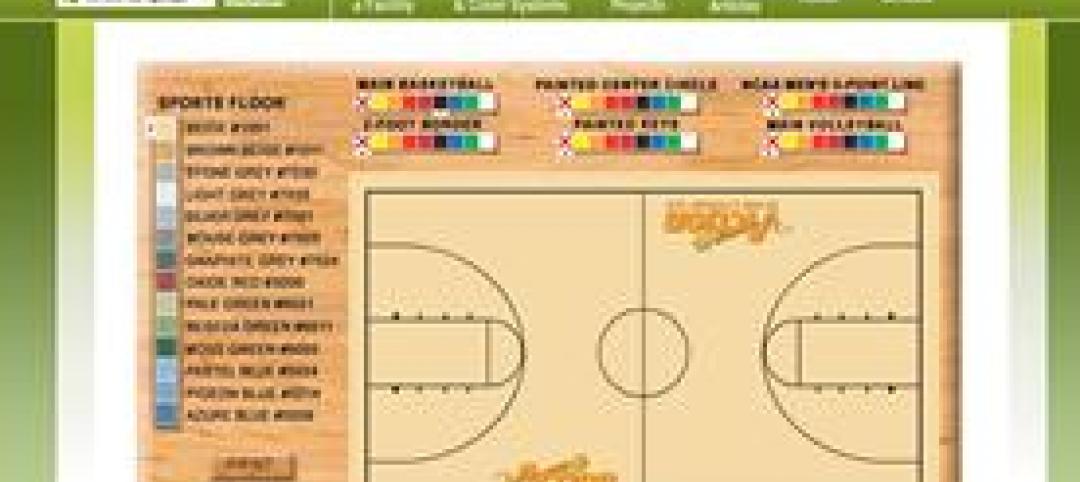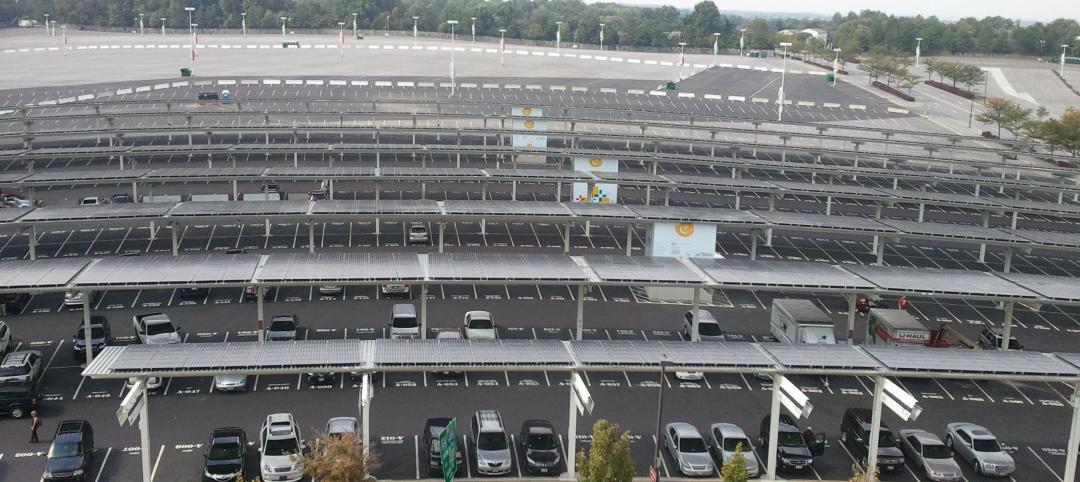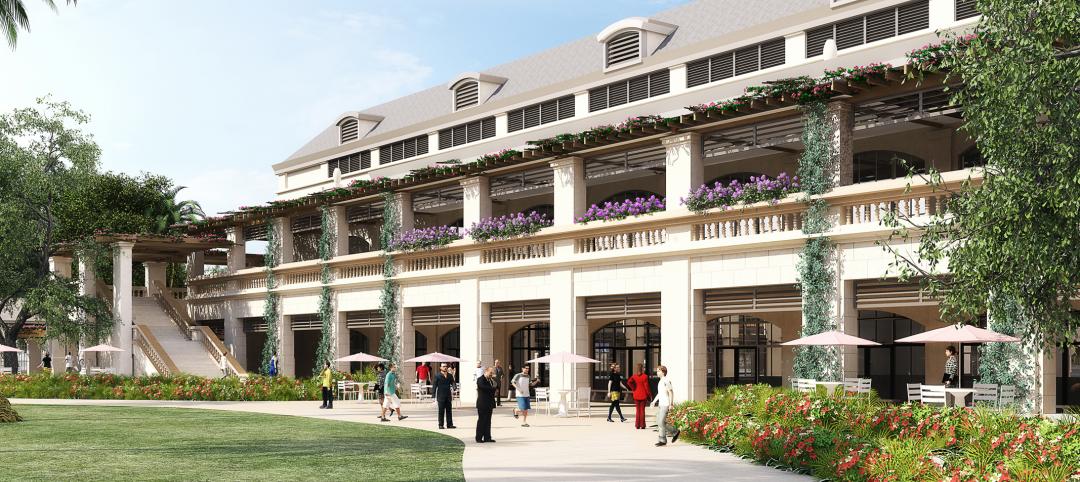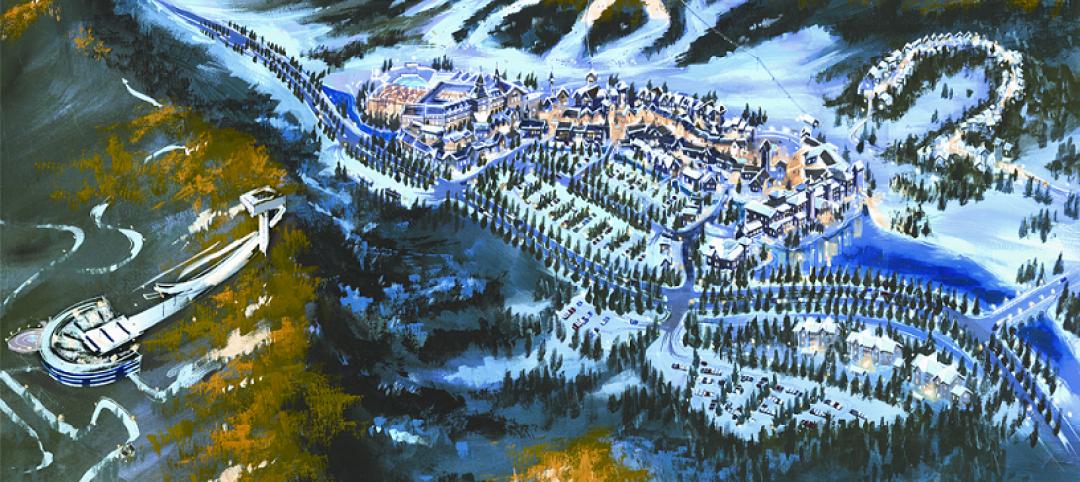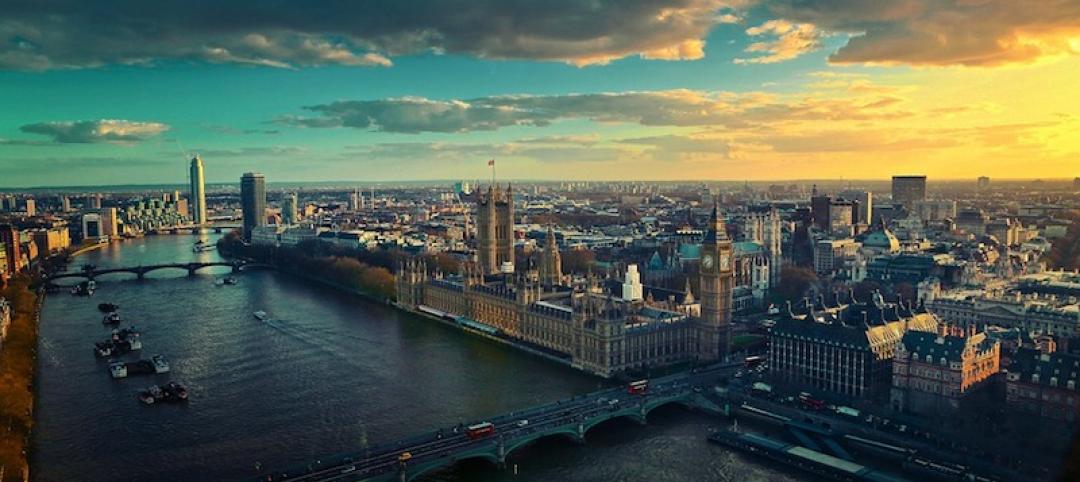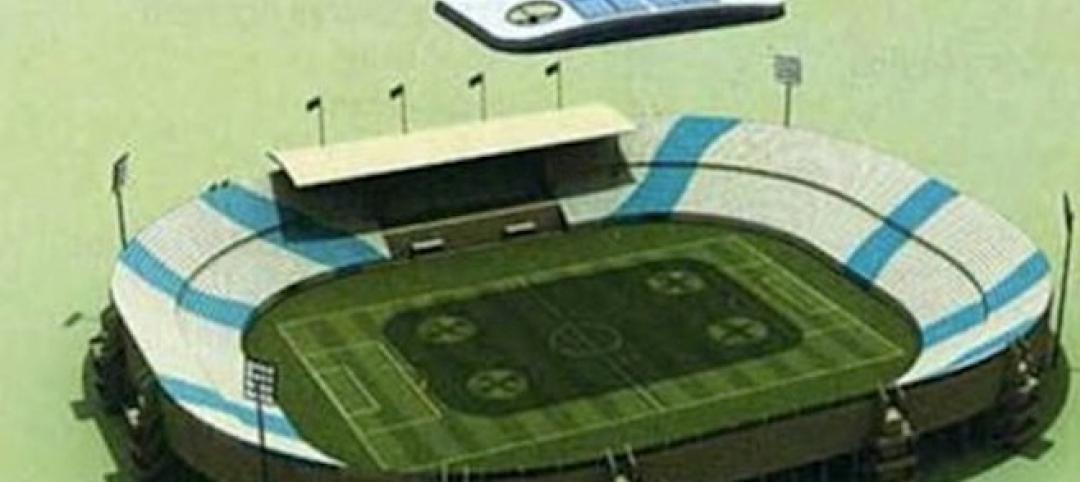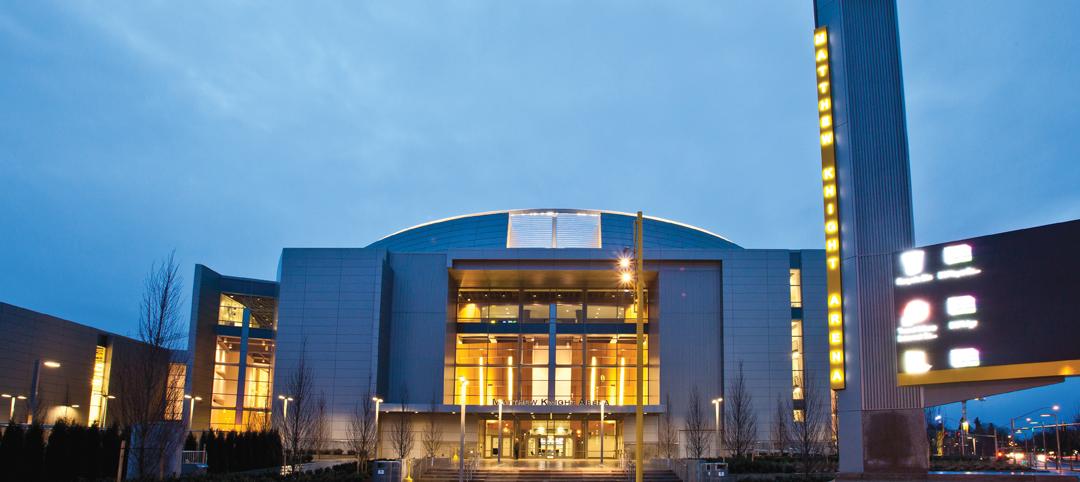Spread across 1.3 million sf in Austin, Texas the new East Austin District will provide the fast-growing city with its first pro-sports stadium and large-scale music arena.
The 40,000-seat outdoor bowl is designed for large-scale soccer and rugby matches, music festivals, and other major events. The 15,000-seat multi-purpose arena is connected to the stadium and will serve as the home for Rodeo Austin, musical acts, basketball, and hockey.
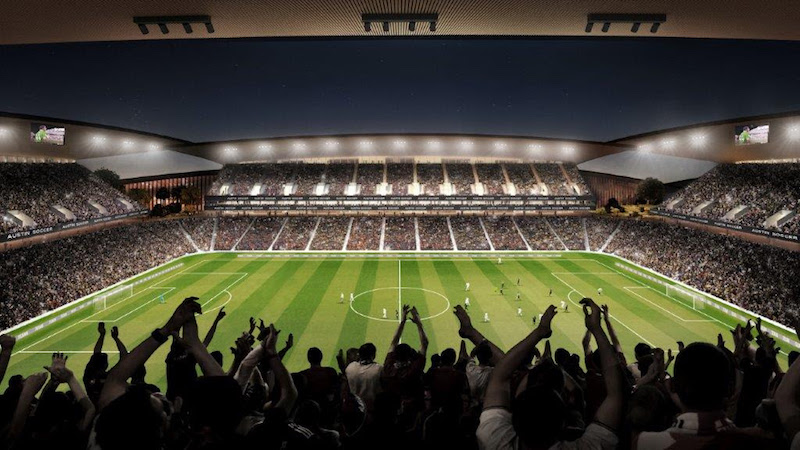 Rendering courtesy of BIG.
Rendering courtesy of BIG.
The stadium and arena are joined by 190,000-sf of premium facilities and support functions. The separate buildings are unified by all-wooden interiors. Eight courtyards act as outdoor living rooms that connect the entire district. Visitors can gather in the public parks and plazas for communal gatherings, food truck scenes, recreation, and concerts. At the edge of the district are buildings for retail, shopping, dining, and hospitality. Youth education and enrichment are promoted via 28,000-sf of youth facilities.
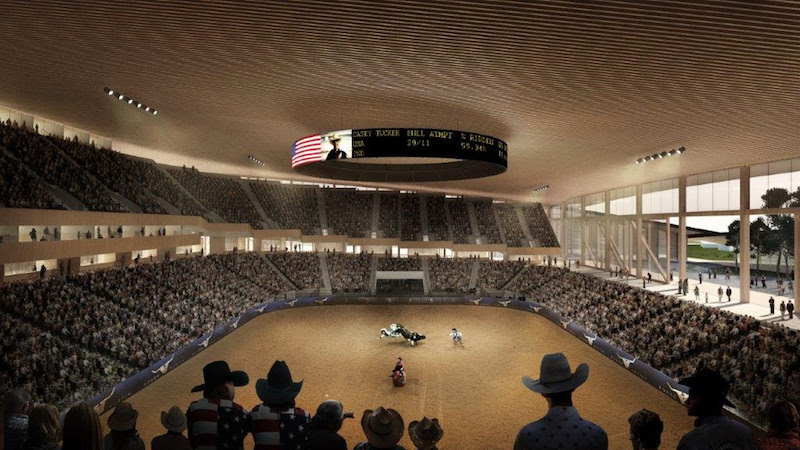 Rendering courtesy of BIG.
Rendering courtesy of BIG.
“Like a collective campus rather than a monolithic stadium, the East Austin District unifies all the elements of rodeo and soccer into a village of courtyards and canopies,” says Bjarke Ingels, Founding Partner, BIG, in a release. “Embracing Austin’s local character and culture, the East Austin District is a single destination composed of many smaller structures under one roof.”
The entire district is laid out in a checkerboard that appears as a latticed roofscape from above. The roof offers protection from the elements as well as a home for red photovoltaic panels that allow the entire district to be self-sufficient. The plan is for East Austin District to one day share its energy resources community-wide to power East Austin’s electricity and economy.
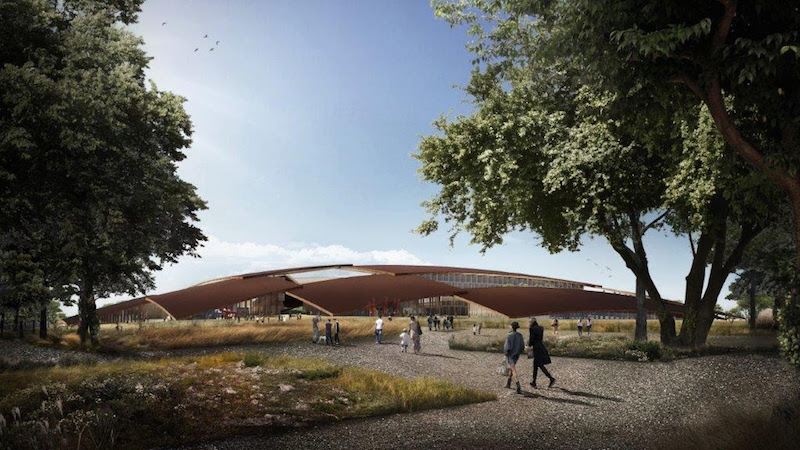 Rendering courtesy of BIG.
Rendering courtesy of BIG.
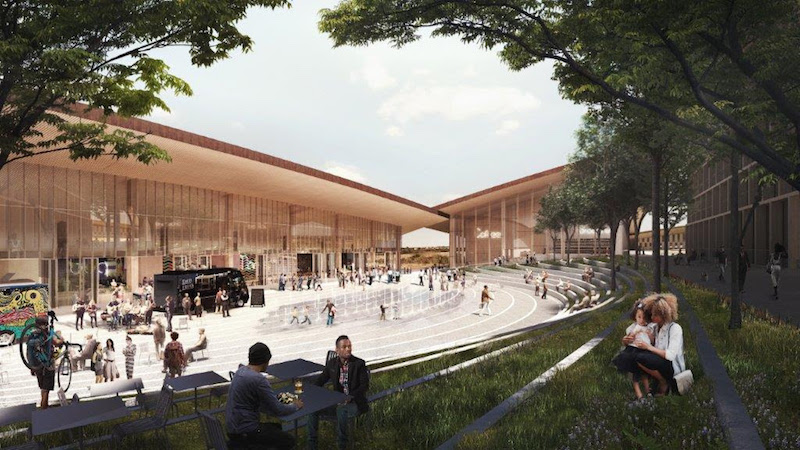 Rendering courtesy of BIG.
Rendering courtesy of BIG.
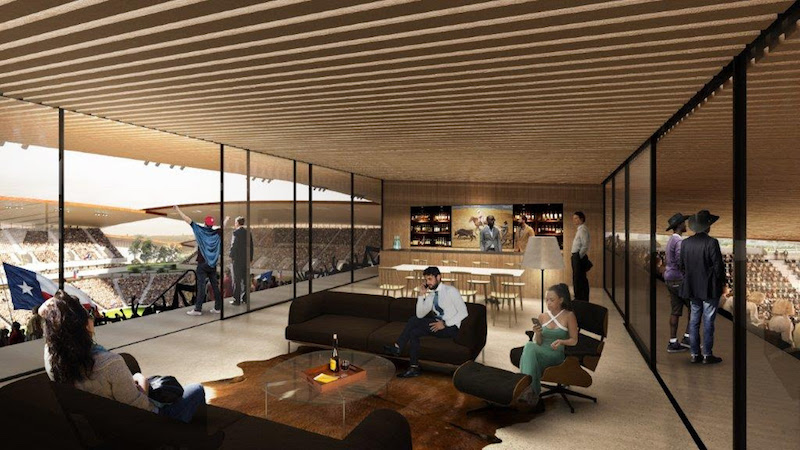 Rendering courtesy of BIG.
Rendering courtesy of BIG.
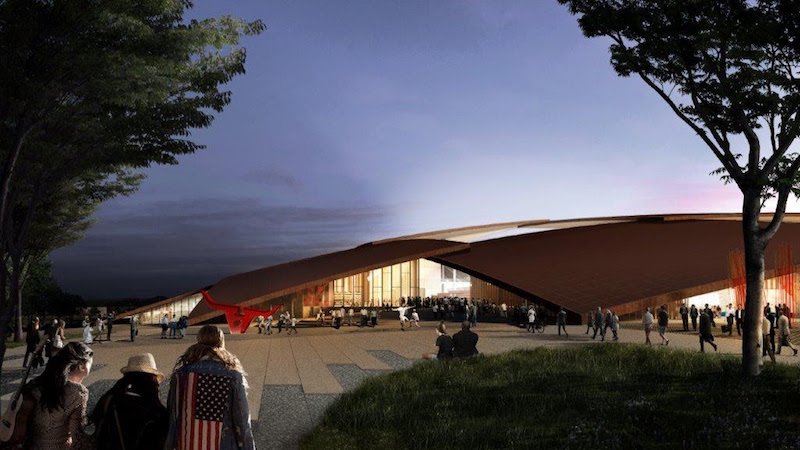 Rendering courtesy of BIG.
Rendering courtesy of BIG.
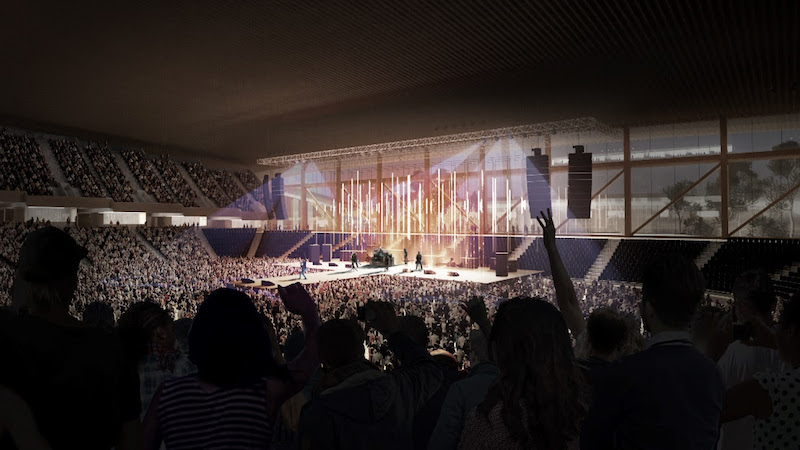 Rendering courtesy of BIG.
Rendering courtesy of BIG.
Related Stories
| Sep 30, 2011
Design your own floor program
Program allows users to choose from a variety of flooring and line accent colors to create unique floor designs to complement any athletic facility.
| Sep 16, 2011
Largest solar installation completed at Redskins' football stadium
On game days, solar power can provide up to 20% of FedExField’s power.
| Sep 12, 2011
First phase of plan to revitalize Florida's Hialeah Park announced
This is the first project of a master plan developed to revive the historic racetrack.
| May 25, 2011
Olympic site spurs green building movement in UK
London's environmentally friendly 2012 Olympic venues are fuelling a green building movement in Britain.
| Apr 11, 2011
Wind turbines to generate power for new UNT football stadium
The University of North Texas has received a $2 million grant from the State Energy Conservation Office to install three wind turbines that will feed the electrical grid and provide power to UNT’s new football stadium.
| Apr 5, 2011
U.S. sports industry leads charge in meeting environmental challenges
The U.S. sports industry generates $414 billion annually. The amount of energy being consumed is not often thought of by fans when heading to the stadium or ballpark, but these stadiums, parks, and arenas use massive quantities of energy. Now sports leagues in North America are making a play to curb the waste and score environmental gains.
| Mar 25, 2011
Qatar World Cup may feature carbon-fiber ‘clouds’
Engineers at Qatar University’s Department of Mechanical and Industrial Engineering are busy developing what they believe could act as artificial “clouds,” man-made saucer-type structures suspended over a given soccer stadium, working to shield tens of thousands of spectators from suffocating summer temperatures that regularly top 115 degrees Fahrenheit.
| Mar 11, 2011
University of Oregon scores with new $227 million basketball arena
The University of Oregon’s Matthew Knight Arena opened January 13 with a men’s basketball game against USC where the Ducks beat the Trojans, 68-62. The $227 million arena, which replaces the school’s 84-year-old McArthur Court, has a seating bowl pitched at 36 degrees to replicate the close-to-the-action feel of the smaller arena it replaced, although this new one accommodates 12,364 fans.


